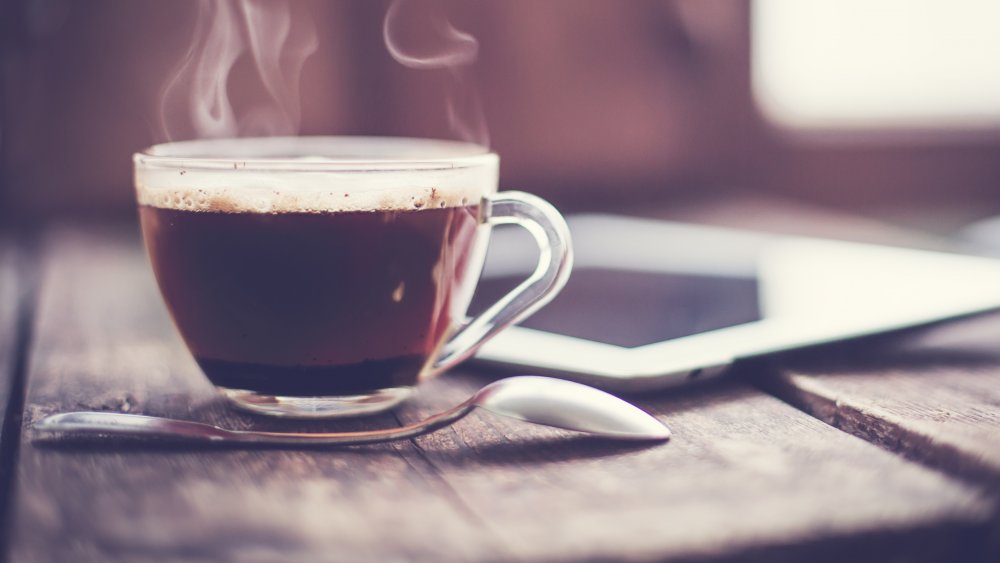Here's How Much Caffeine Is Really In Decaf Coffee
Decaf coffee is a great option when you want to drink coffee, but are feeling anxious or are afraid it will keep you from being able to sleep. However, contrary to how it sounds, decaf coffee is not completely caffeine-free.
Removing the caffeine from a coffee bean is a complex process. There are multiple methods, though the most common method is the solvent extraction technique (via Self). With this method, the green coffee beans are harvested and dried, and then soaked in a solution containing a solvent, which is usually either ethyl acetate or methylene chloride.
These chemicals may sound concerning, but only trace amounts of them remain by the end of the process. Ethyl acetate is "generally recognized as safe" by the Food and Drug Administration (FDA), and methylene chloride is a potential carcinogen, but the latter is present in only minuscule amounts (around 10 parts or less per million) which isn't considered a health risk.
The amount of caffeine that can be removed depends on how forcefully the solvents are able to pull out caffeine molecules. As the caffeine leaves the beans, the amount of force the solvents can generate goes down. Basically, after each time the beans go through the removing solvent, it becomes more difficult to remove the remaining caffeine. It creates a system of diminishing returns on the amount of decaffeination possible, leaving the last bit practically impossible to remove.
There is a range of caffeine in decaf coffee
Generally, a typical 8-ounce cup of regular coffee contains approximately 95 to 200 milligrams of caffeine (via U.S. National Library of Medicine). Decaf coffee, on the other hand, contains far less — only between two to 15 milligrams of caffeine, according to the FDA. The variability relates to the amount of caffeine that was in the coffee beans to begin with, which can vary based on the growing region and the type of coffee bean.
Additionally, there is the variable in the coffee-making process of the brewing method and strength the coffee maker uses. However, removing all of the caffeine just simply can't be done. "It is almost impossible to remove all the caffeine from a coffee bean," said Nathan Arnold, a spokesperson for the FDA.
There are no regulations about what can (or can't) be called decaf, but it generally refers to coffee beans where 97 percent of the caffeine has been removed (HuffPost). Those who have caffeine sensitivities, though, should still avoid decaf coffee — just to be on the safe side.

